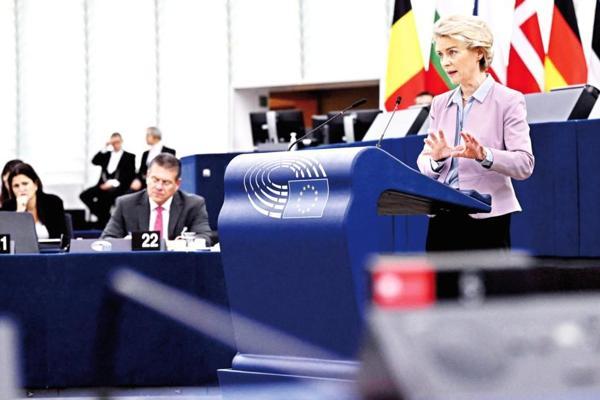EU seeks end to energy price spat with new proposals
STRASBOURG


The European Commission has unveiled its latest proposals to rein in skyrocketing EU energy prices caused by Russia’s invasion of Ukraine, and Moscow’s decision to cut off Europe’s gas supply.
As winter approaches, the EU’s executive has been under intense pressure to tackle soaring heating bills for household and businesses, with some member countries loudly calling for an immediate gas price cap.
The commission’s latest plan does not include the price cap given the opposition of Germany, which fears scaring off alternative suppliers that have stepped in to replace Russia as the bloc’s main source of gas.
The commission’s proposals will be taken up at a summit of EU leaders today . Diplomats warned that the discussions would be difficult due to a lack of ambition perceived by member states that still want a more direct answer to high prices.
A large group of EU countries, led by Italy, have pushed hard for some form of price cap on gas imports and vented frustration against Germany, Europe’s biggest economy, over its 200-billion-euro ($197-billion) plan to help Germans meet the high prices.
“As soon as the (EU leaders) agree on these principles, we will flesh them out .... to make it operational,” said European Commission chief Ursula von der Leyen on Oct. 18.
Von der Leyen, a former German defence minister, said the main emphasis would be on joint purchasing among EU countries in order to better command lower prices to refill gas reserves.
“We know that Europe’s energy demand is very large so it is logical that instead of outbidding each other, member states and the energy companies should leverage their joint purchasing power,” von der Leyen told reporters.
The commission now wants to negotiate joint deals with “reliable” producers excluding Russia by bringing together EU energy giants in a consortium of buyers.
The commission also wants to launch a new natural gas index as an alternative to the existing one that is largely based on pipeline gas from Russia.
While awaiting the new index, the commission proposed to install “dynamic” pricing on the existing one that would limit big fluctuations.
The EU leaders are expected to approve the proposals during a summit session today, but leave it to energy ministers to hammer out the details over the coming weeks.
